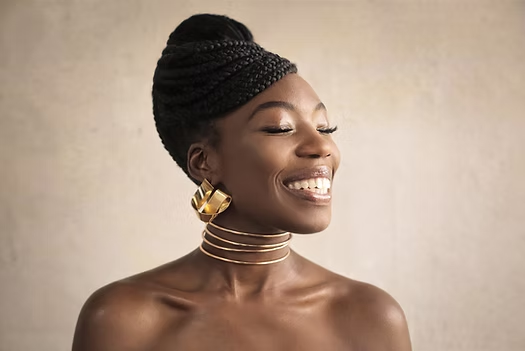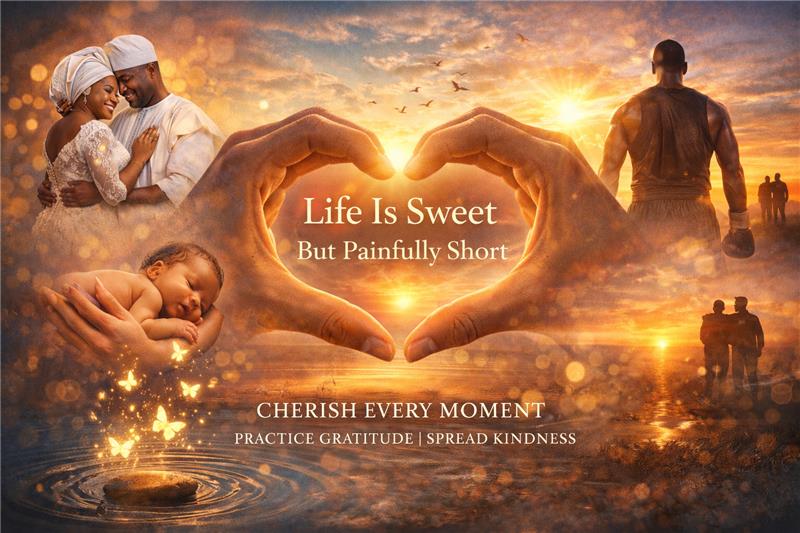‘What does black history month mean to you……..’? I overheard my son asking his friends on his social media platform, and then a few colourful words came from the speakers, too colourful to repeat for me.
My African fatherhood kicked in. I became curious, not about the interesting topic they were talking about, but to know who these young people my son was talking with were. I was tempted to eavesdrop on this private conversation before my phone rang, just in time to save me from the possible embarrassment.
I later asked myself the same question. What does black history month mean to me and maybe to you?
Is it about legacy or about history?
Is it about our pride as a race or about forgotten heroes?
Or is it about our heritage or about our culture?
I remember getting into a heated debate many years ago about having to celebrate my blackness one month out of twelve months of the year when my view was, and maybe to an extent still, is about celebrating being black every single day of the year, just as I believe in celebrating my individualism every single day of the year.
In my early 30s, I experienced a paradigm shift when I realised that my experiences as a black African man were unique to me and were rooted in my personal journey. I also became aware that these experiences were quite distinct from those of millions of third, fourth or even fifth generation of Black Americans and Black British individuals of African descent whose unique narratives are shaped by their histories in the Western world, the only home they know.
B1: ‘It barely means anything to me because it barely matters. Most African/black history, I feel has been lost already due to colonisation and European imperialism’. (I was not sure where he was going with this).
B1: After a brief silence, went further, ‘It could also be that Africans didn’t record much but I also don’t know the extent to which that could be true or false (‘I could be completely wrong here’, he said). Most of what is taught/shown/known to me coming up through the English education system is through the Western lens and practically only really starts when Europe becomes interested in the continent’.
G1 said, ‘I think black history month is like good in theory and like show appreciation and acknowledges what black people have gone through and whatnot, but it can feel quite performative…….’ I feel like people do good stuff and whatnot during the month, but it also feels somewhat wasted or forced’.
B1: ‘No matter how much people try to pretend to care, most people truly don’t know much about black history further than maybe a couple of hundred years and even then most of that history is us being treated like s*#*m, barely something to look forward to looking back on’. I’m beginning to understand his interpretation of my question, which differed from my intention.
She went further to say, ‘BHM gives us a chance to reflect, not only on our trials and tribulations but also on the many contributions we have made to society. It reminds us to be grateful for how far we have come – and for those who got us there – while motivating us to be even better for the generations ahead’. (I felt G2 spoke like a leader).
B1: ‘I thought about it some more. I think it can be important to have time to reflect upon what black people have gone through and done throughout history and I can see why that is a good thing to do. Maybe in the past, it was hugely important because of how unequally races were treated. However, most of what constitutes black history month nowadays is just disingenuous half-assed corporations with marketing campaigns going ‘we support black people’ so that consumers go and buy their products throughout the month.
They can just perpetually do this every year and push more products on our heads, barely having to do anything. All this black history month stuff is ridiculous because black history should just be taught alongside everything else, I can’t see a need for it anymore’.
B2: The second boy said, ‘The BHM is about raising awareness of black contributions and struggles, but lots of stuff brings awareness but does not necessarily fix the problem in society. BHM is one of those originally well-intended courses that has now been hijacked and commercialised. I do not see any reason for dedicating a month to a course if actual steps are not taken to fix the problems and issues that are being highlighted’.
B1: ‘For businesses like you say it’s just another opportunity to make more money, they just have to make a few slogans and put black-related things on sale and they get profits, its just a fugazi-like pride month’.
B2: ‘One Google search and I found Sainsbury’s giving recipes and ingredients you can pay for. Do you think Sainsbury’s cares about Kenyan tradition? That proves my point’.
I smiled as I got up.
I thanked my impromptu participants and offered to get them drinks from the café, but they politely declined. I took my leave and went back into the library reflecting on my conversation with these innocent minds.
I chose not to impose my personal views on them and influence their thoughts. I believe that my moral stance should not be forced upon their social outlook, which prioritises the importance of their individualism. I respected their independence and did not consider it appropriate to advocate for the views of my generation to dominate over their opposing or conforming views.
The narrative continues to evolve as my generation passes on our narratives, which are received in diluted form by our children, whilst we are still trying to remember the unsung heroes that have shaped our world and their contributions to the development we are all enjoying. These contributions gave their lives meaning that has become our legacy.
Throughout history, many black inventors have contributed significantly to the world we live in today, from Sarah Boone, who invented the ironing board, to Walter Sammons, who invented the comb, and Madam C.J. Walker, who revolutionised hair care products, to George T. Samon, who invented the clothes dryer. The list goes on with the likes of William Purvis, who invented the fountain pen, and John Standard, who invented the refrigerator. Not to forget Alexander Miles, who invented the elevator, and Charles Drew, a black scientist who discovered a way to preserve and store blood, leading to the establishment of the world’s first blood bank.
My blackness, the history I have grown to learn, and the lived experiences of my forefathers’ and mothers create narratives that are the truth I sometimes don’t want to live with, but I cannot live without.
I have since come to realise that Black History Month to me, is about the history of Black people around the world. History of the Forgotten Heroes. It is about the legacy of our fallen fathers and mothers who have contributed to our history in one way or another.
It is also about recognising and appreciating the efforts of many white men and women who played a significant role in supporting the struggles and liberation of black people throughout history.
BHM to me goes further to the unspoken wealth and abundance of life of black Africans before the slave trade, to the struggles and pain endured during slave eras, to the freedom fighters that paved the way back into freedom but not-so-free societies, from the wind rush journey that began in the 1940s, to the struggles of the wind rush descendants that is still going on in the 2020s.
On a more personal note, Black History Month is about the founding fathers and Mothers of Africa. It is about the individuals who have reshaped African narratives and rewritten Black history across the world.
It is about the Black youths, the younger generations of African and African descent, that are changing the images of Africans, from the poverty-stricken continent with sad images of pot-bellied children in the slums of African countries, covered in flies, to brighter global entertainment industries and to fashion icons around the world, the likes of Chioma Nnadi the new head of British Vogue.
For me, the month is to celebrate the achievements of indigenous Africans who are using their high-tech skills to solve African problems, to global entrepreneurs like Adebayo Ogunlesi – a Nigerian lawyer and investment banker who owns one of Britain’s biggest airports and is known as “The Man Who Bought Gatwick Airport”.
It is to celebrate Black Americans who tell often-overlooked black stories through film and television, with Tyler Perry as a notable example. The month is to celebrate Black British who have made significant contributions to society and broken down racial barriers, with Sir Trevor Lawson McDonald OBE being a prominent figure in news broadcasting as a Trinidadian-British journalist and newsreader.
It is about inspirational women and men that have shaped our narratives. Akala, one of my favourite British authors recommended three good books you can read that can give you a better insight into the history and struggles of the Blacks:
- Staying Power (The History of Black People in Britain, by Peter Fryer). Have tissue next to you as you may need it.
- Black people in the British Empire. By Peter Fryer.
- Black and British: A Forgotten History. By David Olusoga.
This is a link (below) to another lovely article I came across some time ago.
The question continues. What does Black History Month mean to you?



